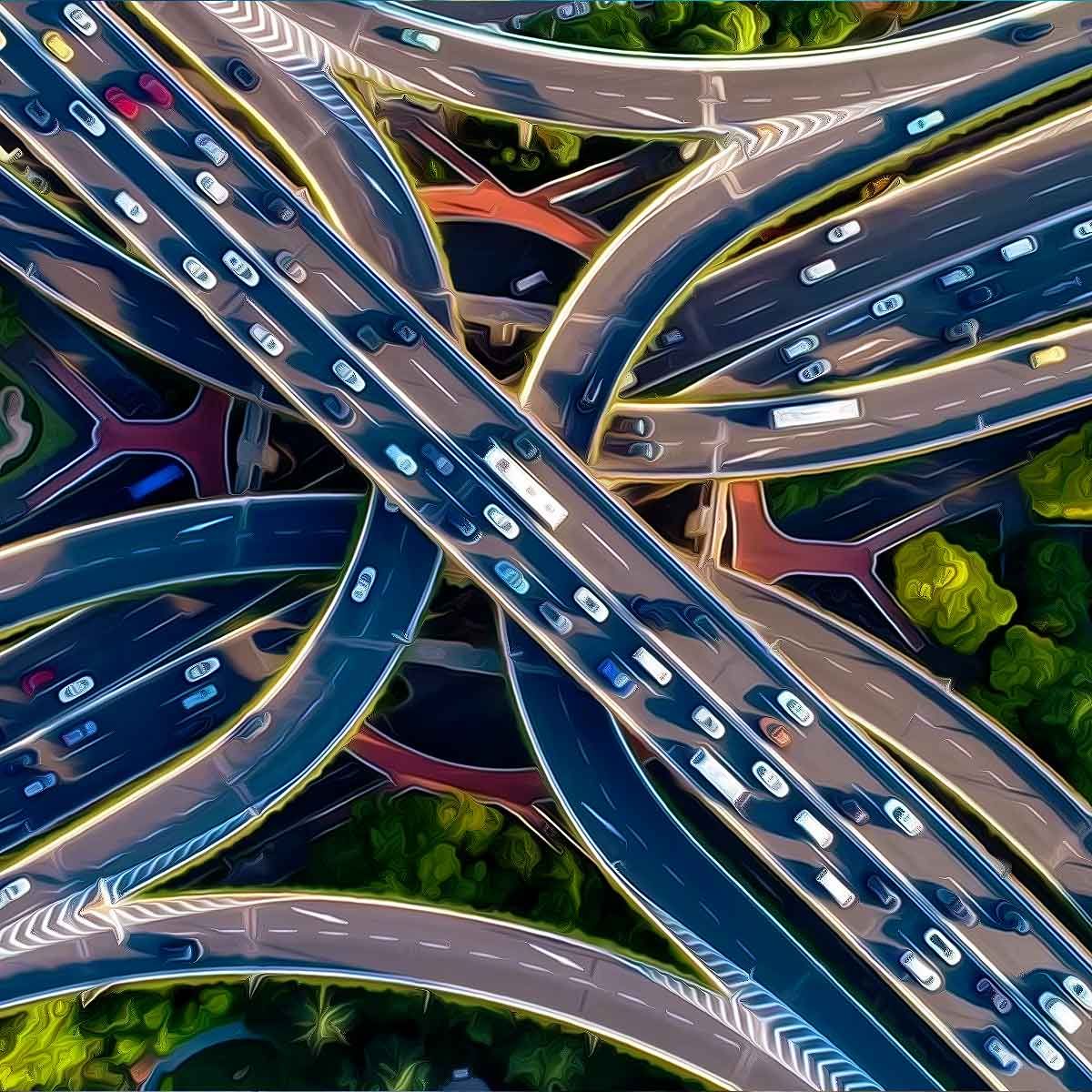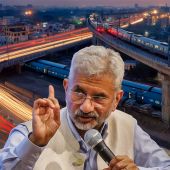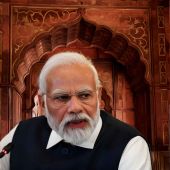“There’s no such thing as failure – just waiting for success”: After denying clearances for development projects for three decades, the Indian Supreme Court green bench clears 118 development projects already delayed for 5 years for pending litigation

NEW DELHI: Having been known for over 30 years for often denying clearances to development projects to protect the environment, the Supreme Court's green bench has now taken a more "pragmatic approach". In a series of orders last week, the bench comprising Justices BR Gavai and Vikram Nath cleared 118 projects which had been delayed for over five years because of pending litigation.
|
"The contest between development and environmental concerns is ever ongoing. There is no doubt that ecology and environment need to be protected for future generations, at the same time, development projects cannot be stalled, which are necessary not only for development... but at times for safety of citizens as well," the bench said.
Among the 118 projects cleared last week by the Supreme Court's green bench, 15 had been in limbo for the past 10 years because of pending cases and had seen costs escalating manifold.
All 118 projects were disposed of by applying the "sustainable development" principle with meaningful assistance from amici curiae - advocate K Parameswar and senior advocate ADN Rao.
In one such case, the SC four years ago put a blanket ban on the diversion of forest land in Himachal Pradesh for any project. With the green bench not sitting regularly, given the pendency caseload, the SC had not been able to look into applications by the HP government seeking a nod for projects. The proceedings speeded up after the green bench was reconstituted with Justices BR Gavai and Vikram Nath.
The bench said, "The SC is flooded with applications after applications, seeking permission to construct primary schools, public health centers, anganwadi centres and other public utility buildings in remote areas... Himachal Pradesh is constrained to approach the SC even for seeking permission to connect villages in remote areas by roads. Needless to state, the citizens residing in the remote hill areas cannot be deprived of the developmental activities that are being undertaken in other parts of the country."
The bench said it was rather ridiculous that the states were required to rush to the SC "even for undertaking minimal developmental activities necessary for the citizens residing in rural/hilly areas" and allowed the HP government's applications. However, it clarified that no developmental project could be carried out in forest areas falling within national parks and wildlife sanctuaries.
Another five-year-old matter is related to the construction of five railway overbridges, part of the Setu Bharatam project, and requires the felling of 356 trees in West Bengal. The Calcutta HC order allowing the felling of trees was challenged in the SC in 2018 and had been stayed since then.
The SC-appointed expert committee had favoured the construction of the overbridges for traffic decongestion. The petitioner's counsel Prashant Bhushan said the project should not be permitted as it required the felling of so many trees, many of heritage value.
For West Bengal, senior advocate A M Singhvi promised that the state would plant more than 1,500 trees in the vicinity of the trees to be felled and said that because of congestion, more than 600 persons have lost their lives in accidents.
Dismissing the appeal and allowing the construction of the overbridges, Justices Gavai, and Nath said, "No doubt that the protection of environment and ecology are important. However, at the same time, it cannot be denied that human life is also equally important. On account of non-construction of rail overbridges, a number of accidents have taken place at railway crossings resulting in death of hundreds of human beings."
References:
 Support Us
Support Us
Satyagraha was born from the heart of our land, with an undying aim to unveil the true essence of Bharat. It seeks to illuminate the hidden tales of our valiant freedom fighters and the rich chronicles that haven't yet sung their complete melody in the mainstream.
While platforms like NDTV and 'The Wire' effortlessly garner funds under the banner of safeguarding democracy, we at Satyagraha walk a different path. Our strength and resonance come from you. In this journey to weave a stronger Bharat, every little contribution amplifies our voice. Let's come together, contribute as you can, and champion the true spirit of our nation.
 |  |  |
| ICICI Bank of Satyaagrah | Razorpay Bank of Satyaagrah | PayPal Bank of Satyaagrah - For International Payments |
If all above doesn't work, then try the LINK below:
Please share the article on other platforms
DISCLAIMER: The author is solely responsible for the views expressed in this article. The author carries the responsibility for citing and/or licensing of images utilized within the text. The website also frequently uses non-commercial images for representational purposes only in line with the article. We are not responsible for the authenticity of such images. If some images have a copyright issue, we request the person/entity to contact us at This email address is being protected from spambots. You need JavaScript enabled to view it. and we will take the necessary actions to resolve the issue.
Related Articles
- "It is not wisdom but Authority that makes a law": SC orders new rules for appointment of Chief Election Commissioner and Election Commissioners similar to appointment of CBI Director by a committee that includes the PM, Leader of Opposition and CJI
- Supreme Court of India Justice Nagarathna ~ Hate Speech denies human beings the Right to Dignity, and a greater responsibility is cast upon public functionaries and celebrities against vitriolic statements owing to their position
- In a case regarding child custody of 11-year-old Kanak, Court orders minor girl to be sent to Nari Niketan: Rajasthan
- "Access is vital in lobbying. If you can't get in your door, you can't make your case": CJI Chandrachud removed justice MR Shah from the bench hearing forced conversion for not succumbing to lobby's pressure, was scheduled for Feb, now listed on Jan 16
- "A benefit is estimated according to the mind of the giver": Supreme Court rewarded series of privileges to retired CJIs, most notable are entitlement to domestic help, chauffeur and secretarial assistant for life, commencing from their date of retirement
- In another shocker, Supreme Court quotes 'every sinner has a future' and commutes death sentence of Mohd Firoz for rape & murder of 4-year-old girl: Child brutally assaulted, two teeth broken while smothering after rape
- Uphaar Cinema fire was one of the worst fire tragedies in recent Indian history: Association of Victims of Uphaar Fire Tragedy (AVUT) filed a landmark case considered a breakthrough in civil compensation law in India
- "Justice for sale, affordability varies": In an escalating controversy, Udhayanidhi Stalin's fierce criticisms of Sanatana Dharma lead to public uproar & legal petitions, Supreme Court denies expedited hearing, ‘Won’t allow it, follow standard procedures’
- "To reopen old wounds is to seek healing, not hurt": 34 years past the assassination of Judge Neelkanth Ganjoo for fulfilling his duty still echoes in Jammu and Kashmir, as the SIA reopens this chapter, we are reminded that justice always finds its way
- "No neutrality, there is only greater or lesser awareness of one's bias": Joshimath Sinking - Supreme Court refuses urgent hearing, "there are democratically elected institutions to look into issue & everything of urgency does not have to come to court"
- Why Hindus not claiming their temples back from the Government control: Is pro-Hindu govt will always be in power
- Notice issued to Central govt on plea challenging the constitutional validity of Waqf Act 1995 by Delhi High Court: Ashwini Upadhyay filed the plea that Waqf Act is antithetical to Secularism in India
- "Delay is the deadliest form of denial": Supreme Court grants temporary respite in Gyanvapi row, halting ASI's survey till Wednesday 5pm, the bench chaired by CJI D Y Chandrachud paid heed to the submissions made by senior advocate Huzefa Ahmadi
- SC bench of Justices Chandrachud and AS Bopanna rules in favor of Muslim petitioner: “Don’t exclude non-Hindus from auction process for shop leases in temple”
- "A people that values its privileges above its principles soon loses both": Delhi High Court upheld the freedom of speech privilege of the advocacy profession, Justice Mini Pushkarna even refused to look into irrelevance or maliciousness of the statement













